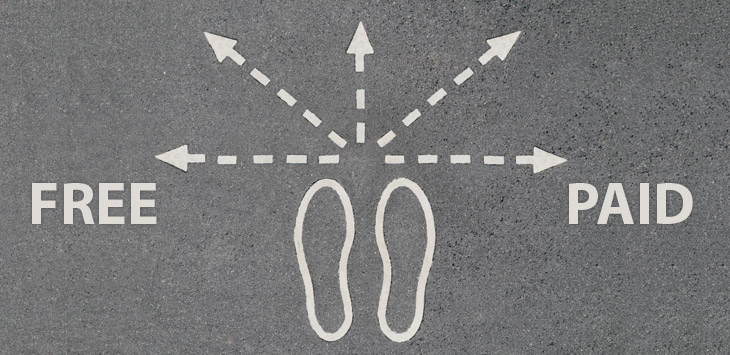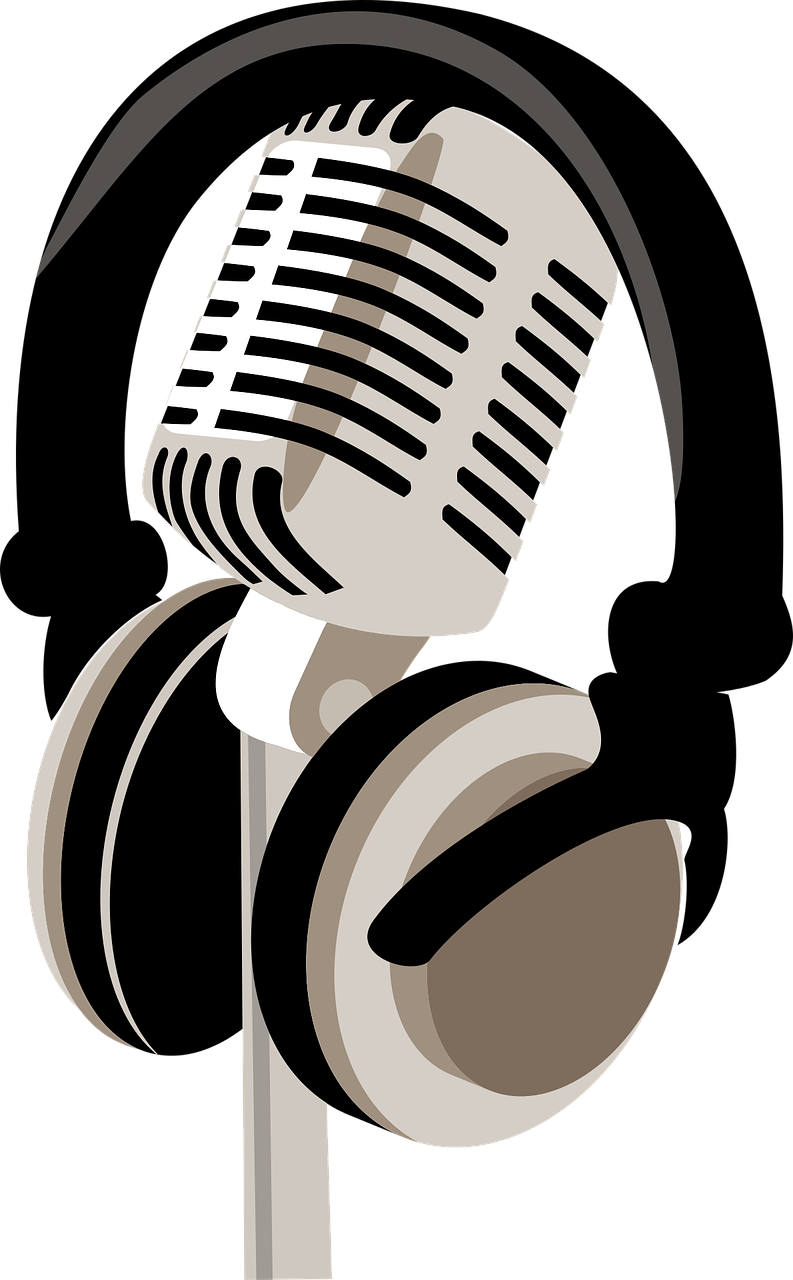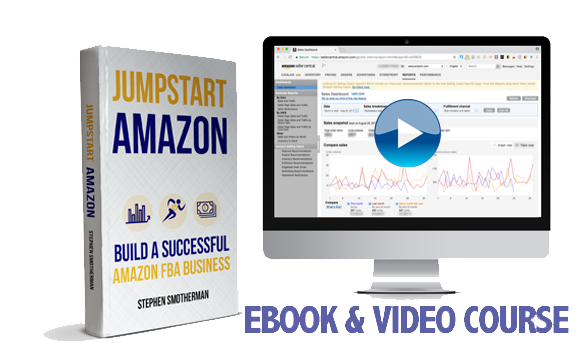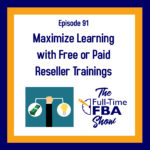When it comes to learning how to sell on Amazon, how to learn any particular Amazon reseller related skill, or how to improve your business, there is a ton of free information online. There is also a lot of paid information out there, which is why, in today’s episode, we are going to help you sort through the noise.
Having our own Amazon FBA business means that we have waded through our fair share of both free and paid information out there, and we are uniquely qualified to help you find the expert in your particular niche, discover paid content that is worth investing in, and verify content providers, whether free or paid. Tune in today for some valuable tips to maximize your learning with free or paid reseller trainings!
Listen on the podcast player below.
Like what you hear? Tell a friend… and be sure to leave us a rating and a review. Here’s how.
Key points from Episode 91:

- The best way to find free information about selling on Amazon.
- Looking for the expert in a particular topic that you are interested in.
- Free is great until it’s incorrect; making sure that the information is up-to-date and verifiable.
- How to find and use paid content and know when it is worth investing in.
- The value of reading through buyer reviews and the return policy when you are unfamiliar with a paid content provider.
- Cautions when it comes to paid content, including checking the copyright date.
- Why people tend to prioritize paid content over free content.
- How to choose between free content and paid content; spending time versus money.
- And more!
Links and resources mentioned in this episode:
 THE BIG BLOGGIVERSARY SALE
THE BIG BLOGGIVERSARY SALE- Our trainings – Full-Time FBA books & courses
- Our most recommended Amazon reseller resources
- Coupon codes for Amazon reseller courses, programs, or services
- The Full-Time FBA Blog
- The Full-Time FBA YouTube Channel
- The Full-Time FBA Show podcast
- Full-Time FBA Instagram Page
- Full-Time FBA Facebook Page
- Full-Time FBA Facebook group
- Full-Time FBA on Twitter
Right-click here and save as to download this episode to your computer.
 More Episodes from the Full-Time FBA Show podcast:
More Episodes from the Full-Time FBA Show podcast:
Don’t miss an upcoming episode! Subscribe, download episodes, and review the Full-Time FBA Show:
-
-
- Subscribe on iTunes
- Follow on Spotify
- Follow on Amazon Music (or just ask Alexa to “play The Full-Time FBA Show podcast”)
- Follow on iHeartRadio
- Subscribe on Podbean
- Subscribe on Podbay
- Subscribe on Podchaser
-
![]()
 The JumpStart Amazon Course
The JumpStart Amazon Course
Build a Successful Amazon FBA Business
By now you know that running a successful Amazon business takes hard work, but you also want to be sure you spend your time focusing on Amazon FBA strategies that are actually proven to provide the results you’re looking for. If you’re ready to finally get serious about your Amazon FBA business, then I invite you to check out JumpStart Amazon: Build a Successful Amazon FBA Business.
JumpStart Amazon is a combination video course and ebook. The ebook is over 220 pages filled with the content and graphics you need to start a successful Amazon business from scratch. The video course features 5 main sections, 19 content-packed modules, and over 40 videos adding up to over 10 and a half hours of video training. This training is set up to help you build a solid foundation and then know how to find growth and success on top of the basics. This course is packed with more results-focused knowledge than any other ebook out there centered around starting an Amazon business. Find out more about JumpStart Amazon today.
Back to the main page for The Full-Time FBA Show
![]()
Episode 91 Transcript:
 [WELCOME]
[WELCOME]
[0:00:01.8] ANNOUNCER: Welcome to The Full-Time FBA Show. In each episode, it’s our goal to help you turn part time hours into a full-time income, selling almost anything on Amazon. Now, your hosts of the show, Stephen and Rebecca Smotherman.
[INTRODUCTION]
[0:00:21.4] STEPHEN: Welcome to episode number 91 of The Full-Time FBA Show. We’re excited that you are joining us for this episode today because today, this week is actually the time we are experiencing and celebrating our 8th bloggiversary, eight years of blogging, and my blogging partner and podcast partner is here with me today. Rebecca, how’s it going?
[0:00:41.9] REBECCA: Going great. So excited about our bloggiversary, this is fun. Every summer, we get to celebrate this and every year, it just gets better and better.
[0:00:50.1] STEPHEN: Absolutely. Stay tuned to the end of the episode where we got a special deal for you because of our bloggiversary but, man, eight years, that’s been 280 blog posts, almost 300 YouTube videos, 91 podcasts right now, tons of golden nuggets on social media. We’ve got stuff for you everywhere. Because of that, since we have also about 10 courses, we put together a lot of free content and paid content and we’re going to kind of dissect that today.
[0:01:17.2] REBECCA: Looking forward to getting into that, free and paid. Both of those have some benefits and we’re going to be discussing that. When it comes to learning how to sell on Amazon, how to learn any particular Amazon reseller related skill, or how to improve your business, there really is just a ton of free information on the Internet. There’s also a lot paid information so we’re going to be talking about both of those topics today on this episode.
[INTERVIEW]
[0:01:41.2] REBECCA: First, let’s talk about the free information that you can find on the Internet about selling on Amazon. Stephen, what would you say is the best way to go about finding the free information that’s out there?
[0:01:57.3] STEPHEN: Well, when it comes to the finding free information because, yeah, like you said, it’s everywhere. There’s a lot of people who say, “You don’t even have to buy any courses because the free content that’s out there is going to, like, solve all your problems.” It’s kind of hard to find free information that you can actually trust. What you want to do when it comes to finding free information is see if there is opportunities out there for whoever is putting this free information out there to help you with smaller problem-solving type of issues.
You don’t want to focus on free information on something that’s going to be a huge project, something like that. You first want to be able to see if you can even trust the person who is putting in this content out to make sure that you can follow through with what they’re teaching.
Test the waters on a particular skill that you want to learn, reading the blog post that helps you out with a small problem that you are encountering, and if you’re able to find success and you learn to trust that person, then maybe their paid content might be even better. You want to see if the person putting the content out there knows what they’re talking about and is trustworthy. You can search on Google to try to find some of this, you can ask in Amazon FBA Facebook related groups but finding that information, it’s out there and it’s easy to find, but sometimes it could be hard to actually decide what it is you’re supposed to follow through with.
[0:03:12.4] REBECCA: As you’re looking for these different places to find this information, whether it’s on YouTube, in a video format, or on a blog, or on a podcast, always be sure to check out not just the number of followers but check out in their descriptions of their channel or their blog, what are they actually focusing on and what are you looking for? Are they Amazon specific? Are they ecommerce in general? Are they entrepreneurship in general?
Different people are going to be focusing on different topics. If you’re really looking for an expert in a particular topic, be sure that you are looking in the right place. Somebody who is a general entrepreneurship type expert, they can have some really great information for you in building a business in general but they might not be the best source for a specific niched question about Amazon seller central. Be sure to look into that.
Also, be sure and check out the comments on different posts and in videos. Now, sometimes that can be a train wreck to look at but look at what people are saying, ask in groups if the person has a Facebook group that’s public to join, look there. Don’t just go in and ask necessarily like, “Is this person good or not?” Because it’s their group, so of course they’re going to have people say that they’re good. Go through and see what people – read, read, read. what people are saying about the content that they’re offering or whether they are engaging with people or have admins or moderators that are engaging in the answering questions or providing help.
Also, we wanted to issue a few cautions that you need to be aware of when you’re dealing with free content. Free content can be really great and we have really enjoyed, that’s what got us started in Full-Time FBA is that we just had the idea to put out a blog. Stephen was answering a lot of question on Facebook groups and I think even back in the day like in a Yahoo group, it was then through email. Answering a lot of questions. We were like, “Hey, that answer was pretty long, we could make that into a blog post,” and so we did.
We started a blog and started putting some of that information out there in that form but you really want to make sure that, if you are looking at free content online, that you aren’t looking at content that’s outdated. Be sure and look for the date that it was created or published to make sure that you’re looking at the most recent information on a particular topic, especially if it’s a very particular question, even about Seller Central or something like that. You’re going to want to know what the most recent guidelines are, what the most recent interface is.
Also on social media, there’s some people who can intentionally deceive others. Make sure that you have just kind of your radar up to make sure that you’re not just falling for a scam but look for things might be kind of click bait-y, like “I heard on Amazon blah-blah-blah.” If you just heard something and you don’t have anything to back it up like an actual email from Amazon or a web link from the website on Seller Central or something like that.
People can try to just get traffic by saying these dramatic statements or something that might be kid of controversial just to get attention. Be aware of that and also know that along those same lines, some authors are just – they don’t know all the Amazon guidelines either, because they don’t take the time to figure it out or because some people who put themselves out there as knowledgeable about Amazon aren’t actually selling on Amazon, either they haven’t ever or they don’t currently.
They might have, five years ago but then they’ve switched gears and are doing more content production. You want to make sure that you’re getting your information from people who are up to date, who always point you back to what Amazon says in their guidelines, who provide links directly to information on Amazon or the Seller Central website so that you are getting the correct information. Free is great until it is incorrect.
[0:07:05.8] STEPHEN: Yeah, then the free information really costs you.
[0:07:07.8] REBECCA: Right, exactly. All right, let’s transition into paid content. There’s also a lot of paid content out there that you can find not just at our website but there’s some others that are really great, that have information about how to sell on Amazon or how to build your business in a better way.
Stephen, what would you say is the best way to use the paid content, to find paid content or to use paid content, courses or books that you can buy to help you with your business?
[0:07:36.6] STEPHEN: When it comes to paid content, I think the paid content is really good for bigger, more complex issues, opportunities where you need a focused course or video training to help you overcome a certain problem, or maybe even just start from Amazon from scratch to make sure that you have everything taken care off, all your i’s dotted and your t’s crossed so that everything is taken care of the right way.
That’s a time where it’s worth to invest a little bit of money to get that paid content. You want to buy it from someone who is either a content author, that has provided knowledgeable and trustworthy information to you in the past, you already trust them, you’ve already got – feel like you have a relationship with them, that they’ve put out good free content, or maybe you’ve purchased a course in the past and you really like that. You know that they’re trust worthy, that they’ll follow through with the promises that they’re offering on their sales pages of their courses.
You can go that direction, or if you have someone that you trust that gives a recommendation of someone else that they trust, you know, you can transfer that trust over and feel like that you can trust them too because the person you originally trusted, trusted them. There is that whole trust thing going on.
We have a page on our site with our recommended resources, these are the resources that we recommend because we trust the content creators. We’ve gone through the course ourselves, and so I’ll put that in our show notes link, but when it comes to buying paid content, if you might not know the author yet or the content creator, you don’t have that trust then the next best thing is to read through the buyer reviews.
If there is testimonials on the sales page, if you heard someone else talking about the course that they really like the course, go through and look at those buyer reviews because you can find out a lot about a course and if the training really helps and follows through with its promise. One last thing, if you don’t even have access to buyer reviews, look at the return policy. Make sure that the return policy is a good return policy.
The industry standard for content is usually like a 30-day refund policy. Some people do as short as like 14 days. We go 60 days for most of our courses because we want to make sure people will have a chance to actually put it into action and see the results, but what’s the return policy they have to jump through hoops and make sure that you’ve watched every video in the course before you’re allowed to return it?
Find out what the return policy is so that you have more of a cushion, more of a better understanding, and more peace at the item that you happen to be purchasing and investing your hard earned money into, so that you can make the most of the paid content you’re investing in.
[0:10:03.4] REBECCA: Yeah and along the same lines, we had some cautions when you’re dealing with free content, when you are using free content that you found online. We also have some cautions when it comes to paid content. Some of these are similar. With paid content you also want to make sure that you are not getting outdated information or that the authors are trying to sell you a course that they don’t know all the Amazon guidelines.
Again, always double check. There should be links within these courses that point you to Amazon so that you can make sure that you are reading the most current information, and also, you know, check the copyright date on some of these courses that are out there because somebody might have put together a course in 2017 that was great at the time but to buy it now in 2021, you might be getting some good basic principles but you’re not going to get the most up to date version of the Amazon guidelines and the interface as well.
You can also Google the name of the person or the company that’s put together the training, see if you can find reviews online, especially when you’re looking at things that you know, if there is like a $10,000 training course that everything is done for you. We see people in our group, sadly, all the time who come in and say that they paid tens of thousands of dollars for courses that are just so extremely overpriced and they promise that they are going to do all of these work for you.
They’ll put it all together for you, they’ll build your business for you, they’ll find your product for you, all of these things and they sadly, sadly under-deliver. Honestly, you can find some of that information online. Better Business Bureau reviews and even sometimes newspaper articles calling out these people for their practices and that they have been under investigation for these things. Be sure that you Google to see if there is any negative reviews out there.
Again, sometimes you have to take negative reviews with a grain of salt but also, if you are finding people over and over again saying that, “This was a waste of my money, this was not helpful,” then run the other direction.
[0:12:06.9] STEPHEN: Yes.
[0:12:07.3] REBECCA: All right Stephen, what do you have as final thoughts for our listeners today about free content and paid content?
[0:12:14.6] STEPHEN: Well, one of the things that I love is psychological type of stuff and psychologically, people prioritize paid content over free content. I mean, if you purchased a course today for a $100 and you also got a free downloadable book, which one are you going to start with? You’re going to start with what you paid for and focus on that. I mean how many free eBooks have you downloaded in the past that you’ve never actually read?
We prioritize what we put our money into. If you’re really wanting to make something a priority, then make a good choice and invest in a paid program to find the results, and if you don’t have the money to invest in a paid program, then make sure you prioritize the free stuff that you are getting access to because there is good information in free content. Just think about that if you are deciding what you’re going to learn next.
What about you Rebecca? Any final thoughts about free content and paid content?
[0:13:04.1] REBECCA: I would just say one last thing, and this, again, comes up a lot on our Facebook group. People saying, “There is plenty of free information out there. You can just watch a video about that on YouTube, you don’t need to buy a course,” but there really is a lot of great free content whether it’s on YouTube or blogs, free downloadable eBooks. There is a lot of good stuff out there but if you have to spend hours combing through YouTube trying to find the good content or to find a way to organize it so that you are doing everything in the right steps, then you’re wasting time.
Sometimes it is better to just pay for content, pay for a course so that you’re getting information that is focused and it’s structured and it delivers on a specific promise, that there is a clear objective to that course, that if you study this course, at the end of it, you are going to know how to do this, this, and this. That saves you time. It costs you some money but that money is an investment in your business but it is going to save you time, which is also money.
I know that when we’re starting out in our business, sometimes we have more time than money. If that is where you are, then free content might be the best option for you but the more – the further along you get in your business or the more available capital you have, spending a little bit of money in order to have that focused content is a great investment.
[0:14:26.3] STEPHEN: Absolutely, for sure and if you’re interested in a really great deal on some paid content because it’s our eighth bloggiversary, we are having our special three-day big bloggiversary sale July 6th, 7th, and 8th of 2021. We’ll have coupon codes up to 50% off some of our courses. The link to find that, fulltimefba.com/bloggiversary and if you don’t know how to spell bloggiversary, that’s okay. Fulltimefba.com/91 for our show notes page, which will give you a link to the big bloggiversary sale on July 6th through 8th.
We will have all of our active courses on sale up to 50% off and it will give you an opportunity to save some big money while getting some amazing paid courses.
[0:15:07.7] REBECCA: I’ll be real honest, I’m not sure if we know how to spell bloggiversary either. We have spelled it a way.
[0:15:13.3] STEPHEN: Two G’s.
[0:15:14.2] REBECCA: Two G’s and an I. I don’t know, it looks good.
[0:15:18.7] STEPHEN: We’re going to go with that.
[0:15:19.5] REBECCA: We’ll go with that.
[CLOSING CONVERSATION]
[0:15:24.1] REBECCA: Thanks as always for being here with us on The Full-Time FBA Show. We’re especially grateful for you being here with us on our bloggiversary episode. We always love celebrating our bloggiversary and we are glad to be able to celebrate with you about offering these discounts. Just remember that the links to the information we’ve been talking about can all be found in our show notes, fulltimefba.com/91 and you’ll be able to find anything that we’ve mentioned here that you want to follow up on including the transcript of this episode if you are interested in reading it.
[0:15:55.7] STEPHEN: Next week on the show, we are going to be talking about The 8 Things You Need to Start Selling Wholesale Items on Amazon. A lot of people are interested in adding wholesale to their Amazon business. We are going to talk about the eight things that we think you need to set yourself up for success and we’ll do that next week on The Full-Time FBA Show. See you then.
[OUTRO]
[0:16:15.6] ANNOUNCER: That is all for this episode of The Full-Time FBA Show. So head over to fulltimefba.com/podcast, where you will find the show notes and links from this episode. While you’re there, subscribe to our newsletter where you’ll get several free downloads of our popular and helpful Amazon FBA resources. Now, take action on what you have learned today so you can find success at turning part-time hours into a full-time income with Amazon FBA.
[END]

Leave a Reply